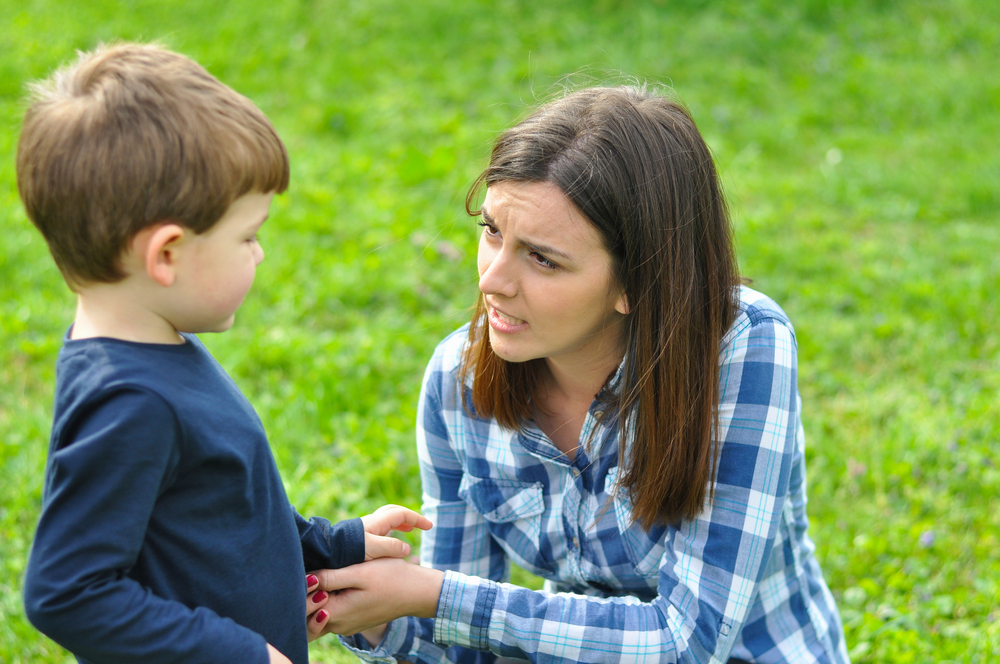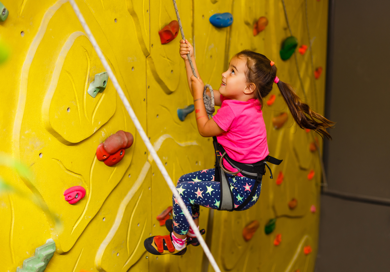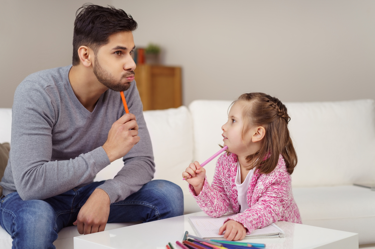Why Children Need To Learn Self Discipline – 8 Tips To Help Them… And You!


As a parent of three children, a former schoolteacher, and a family therapist, there are certain truths that I’ve learned along the way. One of those involves the value of learning self-discipline. It’s an incredibly practical life lesson for our children to develop.
Here’s why. Kids who learn self-discipline will be better equipped to deal with life’s challenges, manage their stress, and make healthy choices even when you’re not around. Trust me; this is something you want to start early so that when the really hard choices come along (like peer pressure, dating, managing their time and grades), they will have enough self-discipline to make better choices.
Self-Discipline
So, just what is self-discipline? Here is my favorite definition. Look at self-discipline as choosing how you want to act moving forward rather than reacting out of emotions.
Self-discipline promotes good judgment, and the exercise of good judgment is an opportunity to empower your child to make good choices. Of course, children are not born with self-discipline. They learn it from the most influential people in their lives.
Tip: One of the greatest benefits of your child learning self-discipline is that they are much more likely to grow up feeling a greater deal of self-confidence. They know that they can control themselves in challenging situations. A child with healthy self-discipline is also a child who may take on more complex tasks. Needless to say, these are great life qualities to learn at any age!
And speaking of any age…
It’s never too late to start
Some parents believe that once their children are pre-teens or teens, it’s probably too late to promote effective discipline. This is an absolute myth and a very unhelpful self-fulfilling prophecy. I’ve seen many, many parents learn how to become more effective parents no matter the ages of their children…even adult children.
As a parent, if you put the effort in now to have your child be self-disciplined, later, you’ll find yourself doling out more praise and smiles than negative consequences and disappointment.
Impulse control is particularly a real challenge between ages 3 – 7. So, start these lessons and encourage empowering smart choices early. Because once your child gets into the classroom, it’s even more important to monitor themselves when it comes to behavior and the ability to sit still, listen and follow directions.
Once outside of elementary school, it becomes more about managing their time better with homework, age-appropriate house chores, friends, and extracurricular activities.
Parental acknowledgment, rules, and consequences help shape their self-discipline and teach them to take responsibility for their own actions. It’s the key to making responsible, productive adults. It’s also one of the best building blocks for happiness and self-esteem.
Science is on your side
Research shows self-disciplined toddlers are more likely to grow into persistent, positive, healthy, and satisfied adults.
Let’s start with a few additional tips on what we can pass to our children to support them in self-discipline.
Be a Transparent Parent!
Self-discipline is a lesson many of us struggle with as adults, let alone passing it along to our children. However, being transparent and open about how you are also practicing self-discipline is a great gift to give your child. They learn so much more from how we live than what we teach. Right?!
We all are familiar with the challenge of making good choices rather than immediate satisfaction. Think about that dessert you passed up or the new pair of shoes you really want but didn’t buy. But this also has to do with resisting distractions and handling emotions better.
Tip: Share the goals you have and what’s motivating you to make smarter choices and practice self-discipline. This leads to my next tip.
Lead by example
When we lead by example, we create a great opportunity for our child to set goals and rewards based on what they want to achieve.
Tip: So, if, for example, you want your child to value reading, be a role model. Use a bit of your own self-discipline and make sure that they see you reading.
Being open to our process gives them a real-world idea and a living example of how goal-setting and self-discipline are intimately connected. They will learn the struggles but also the tremendous rewards.
Acknowledge good behavior
As parents, sometimes we can actually be a magnet for bad behavior by saying “no” all the time. We don’t intend for this to happen, but sometimes it does.
You know the common saying, “You get what you measure”? Well, start finding ways to acknowledge your child’s good behavior (even the small stuff) and you will very likely see more good behavior.
Tip: It’s always smart to play to acknowledge our children when they are doing their best, no matter what the result is. Always.
Provide rules & structure
Particularly in new situations, it’s important to let kids know what you expect of them. Tell them what is appropriate behavior and what you anticipate will happen. Let them know the timing of the day. For example: “Hey kids, we’re going to run a few errands today, including going to the library. Please stay close to me. No running in the store or in the parking lot. We’ll spend some time in the library, and I’d like for you to pick three of your next favorite books. Then we’ll stop by the park so you can run all your crazies out. Then we’ll go home, make dinner together, eat, then read a new book and get ready for bed. Any questions?”
Letting your child know how the day will flow and what to expect establishes the rules and gives them an idea of how to self-regulate, take responsibility for their behavior and make good choices.
The most important piece related to rules and structure is this: your child knows the WHY behind the rules and structure that you create. Oftentimes, the why is about their safety, the value of performing reasonable tasks that are age appropriate (see below), respecting others, and an opportunity to teach kindness. Giving children the context helps them have a better understanding of your expectation.
Bottom line: When your child knows what is clearly expected of them and why, life becomes easier for everyone.
Routines rule!
When at home, make sure there is some semblance of a routine and what you expect from them each day. It may even be helpful to provide a chart (with pictures for the non-readers) to let them know what you expect: teeth brushed, beds made, clothes put away, pick up toys and socks (they seem to be everywhere!), help clear the dinner table, do dishes, etc.
My favorite routine is, of course, going to bed! Creating a bedtime routine also establishes what is expected of them and an opportunity to make good choices (also so it can move along so adults can have some time alone!).
Tip: While I am a big fan of routines, I’m also a fan of exercising some flexibility when situations arise that require it. Don’t be afraid about occasionally abandoning a routine if, in your judgment, it is better for your child and you.
Appropriate consequences
Scientific research clearly demonstrates that the very best and most effective consequences tend to have three things in common: they are timely, proportionate and preferably, positive in nature.
Using appropriate consequences teaches children responsibility and accountability. It also can give them time to reflect on the situation and what they can do differently next time. A great question to ask yourself is, “What do I want my child to learn from this situation?”
Here’s a common example. Say you discover that your teen stays up late at night – past their bedtime texting or using other forms of social media. If they are sleepy the following morning, you can use this as a teachable moment, equating staying up too late with morning fatigue.
Tip: Of course, another way to go is to declare that all personal electronic devices are to be turned off during bedtime hours! If your child does not always comply, a reasonable consequence would be that they lose their privilege to use their device for a specific period of time. I know many parents who use this strategy with great success.
Be consistent and proportional
As a parent of three, I can tell you that this is not always so easy. I think the biggest mistakes I have made as a parent were due to a lack of consistency on my part. If you show consistency with your child, they will likely be more consistent in their behavior.
In terms of being proportional, it’s often easy to make harsh consequences in the heat of the moment. Proportional responses are more likely to be seen as being fair in the eyes of your child. You might even want to involve your child in terms of what they might think is an appropriate consequence. It could lead to some very interesting conversations about what is truly fair.
Tip: Discipline doesn’t always have to involve being stern. Like the dad above, you can also have some fun with this!
The important thing is to follow through and keep your word (remember they are always watching and learning from you!). Make sure whatever consequences you dole out, you can keep it!
Again, whenever possible, make sure consequences are timely, proportionate, and positive.
Teach healthy choices
Educate your child about food by having them notice their body when they eat too much sugar or, after having a healthy meal of whole foods, or how groggy they may feel after shoving a pizza down for lunch. This will help them develop body awareness and prepare them for making good food choices.
We obviously want to stress the importance of safety, whether it’s how to safely walk across the street, why we use car seats, and why we don’t talk to strangers.
Tip: As your child gets older, talk about safety when it comes to daring adventures and sports. Let them know what could happen, not to scare them but have them be aware. Share what you can see and anticipate in a situation. Help them develop good instincts and a sense of responsibility. Better for them! Better for you!
I hope that this article was helpful. As a fellow parent of three children, as well as a family counselor and parenting coach, I know how challenging and rewarding all of this can be. Please feel free to contact me if you have any questions about your child. I would be more than happy to offer you a free 15-minute phone consultation to help out in any way I can.





















How to Create the Best Possible First Day Back to School for Your Child…and You! | Gary Brown
[…] work backward on a timeline from there. Let them help determine when to wake up. Empower them to take responsibility for themselves. You may even want to consider buying an alarm clock that they set each night (and add that to the […]
21 Things Your Child Should Be Able to Do…And Should Do By The Age of 12 | Gary Brown
[…] was important to my wife and I that our kids grew up to be independent and self-reliant. Of course, we wanted this to be balanced by healthy dependency so that they would also feel […]